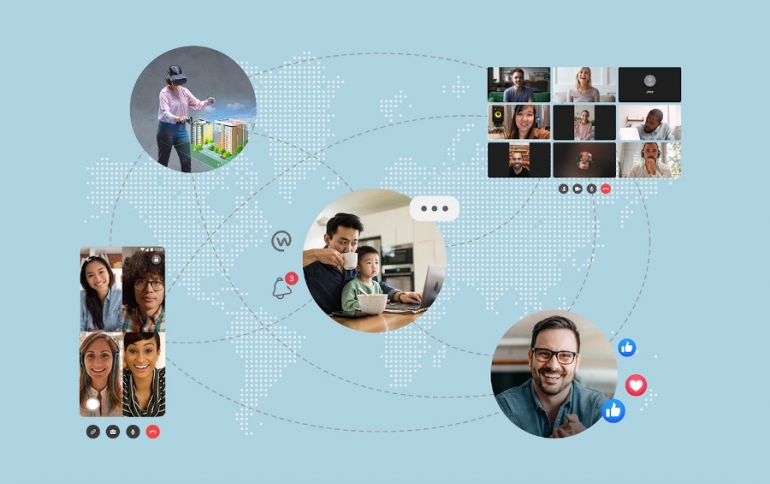
Zuckerberg Says Remote Work is Here to Stay
Facebook Inc will permanently embrace remote work even after coronavirus lockdowns ease, Chief Executive Mark Zuckerberg said on Thursday.
Zuckerberg said the world’s largest social network would start “aggressively opening up remote hiring” in July, expecting that about half its workforce would eventually do their jobs outside Facebook’s offices over the next five to 10 years.
The company would take a more “measured approach” with existing employees based on job function and past performance, he said, and set a January 1, 2021 deadline for staff to update the company on their new locations for tax purposes.
The move follows similar announcements earlier this month by social media rival Twitter and payments company Square, both led by Jack Dorsey, which were the first tech companies to permit remote work indefinitely.
Facebook, will also build three new “hubs” in Atlanta, Dallas and Denver where remote workers in those areas could occasionally convene.
“These aren’t necessarily offices,” Zuckerberg said, although the company would likely create “some kind of physical space” to foster community. “The idea for these hubs is that we want to create scale. We want to focus the recruiting energy in some cities where we can get to hundreds of engineers.”
The total effect on costs of the shift to remote work is unclear, Zuckerberg said. Savings related to real estate, food and labor costs will be partially offset by additional expenses for travel and logistics associated with home offices.
He said the company was committed to keeping its current office spaces, which include a tony Menlo Park headquarters.
Zuckerberg said salaries will be adjusted if Facebook employees opt to live in less-pricey regions, consistent with the company’s existing cost-of-living calculations.
Within that group, he said, just under half reported they would move to another region if given the option.
Tools to Power the Future of Work
Facebook is also making changes to platforms and devices like Workplace, Portal and Oculus, in order to make remote working easier.
Facebook said that Workplace, which enables flexible work while connecting everyone at an organization, already had 5 million paid users – up 2 million since October. And Work Groups, a type of Facebook Group that helps people connect with their coworkers, has over 20 million monthly active users after just six months. The company is introducing new video features in Workplace to make communication even easier. It is also adding features to Workplace on Portal, and widely releasing Oculus for Business to meet early demand for VR-powered training and collaboration.
Workplace Rooms is a secure way for coworkers to get things done and stay connected when they can’t be together in person. It’s a meeting space with unlimited time, where you can invite up to 50 people to a video call even if they’re not in your company or don’t have a Workplace account. Whether you’re holding team meetings, hosting a virtual happy hour, or just jumping on quick one-on-one calls, you can create video call links from Workplace Chat, Groups, News Feed or Portal, then share them in a chat, post, email or text message. Screen sharing makes it easy to collaborate with your team in real time.
When you create a room, you can lock it to prevent others from joining, keep it open for more spontaneous hangouts, or remove participants who shouldn’t be on the call. For security, a new link is generated every time you create a room, and links cannot be used again once they have expired.
Live Producer is a new way to go live on Workplace from your desktop with better production value, control and interactivity. Now you’ll be able to schedule live videos, share your screen and use the live Q&A feature to let people ask and vote on questions. You can turn on automatic captions for live videos in English, French, German, Italian, Portuguese and Spanish. Workplace will also automatically translate videos in one of these languages into the other five, so employees around the world can follow along. You’ll also have the option to edit the captions when you’re done in case you want to make updates before the video becomes available on-demand.
Portal’s AI-powered Smart Camera and Smart Sound make video calls more natural. Now Facebook is bringing those features to Workplace Live on Portal so you can have professional-level broadcasting wherever you are. The Smart Camera keeps you perfectly framed so you can focus on your presentation.
Facebook is also adding a way to watch Workplace Live on Portal so you can follow what’s happening on a second screen while taking notes on your computer. And if you want these features on an even bigger screen, you’ll be able to use Portal TV for Workplace calls and videos starting next month.
Facebook is also making it easier for more companies to use the power of VR to improve business results.
The Oculus for Business platform, which provides software to set up and manage VR deployments, a tailored in-headset experience and enterprise-grade customer support, is now generally available.





















